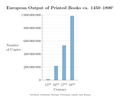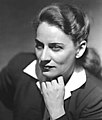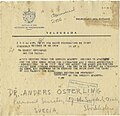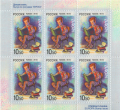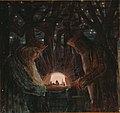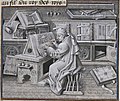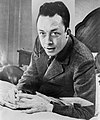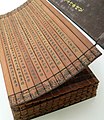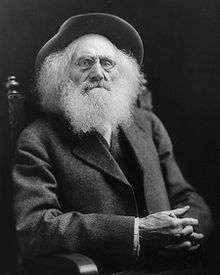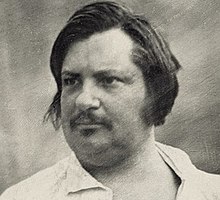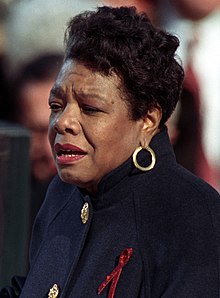Portal:Literature
Introduction

Literature is any collection of written work, but it is also used more narrowly for writings specifically considered to be an art form, especially novels, plays, and poems. It includes both print and digital writing. In recent centuries, the definition has expanded to include oral literature, much of which has been transcribed. Literature is a method of recording, preserving, and transmitting knowledge and entertainment. It can also have a social, psychological, spiritual, or political role.
Literary criticism is one of the oldest academic disciplines, and is concerned with the literary merit or intellectual significance of specific texts. The study of books and other texts as artifacts or traditions is instead encompassed by textual criticism or the history of the book. "Literature", as an art form, is sometimes used synonymously with literary fiction, fiction written with the goal of artistic merit, but can also include works in various non-fiction genres, such as biography, diaries, memoirs, letters, and essays. Within this broader definition, literature includes non-fictional books, articles, or other written information on a particular subject. (Full article...)
General images -
Burger's Daughter is an historical and political novel by the South African Nobel Prize in Literature-winner Nadine Gordimer, first published in the United Kingdom in June 1979 by Jonathan Cape. The book was expected to be banned in South Africa, and a month after publication in London the import and sale of the book in South Africa was prohibited by the Publications Control Board. Three months later, the Publications Appeal Board overturned the banning and the restrictions were lifted.
Burger's Daughter details a group of white anti-apartheid activists in South Africa seeking to overthrow the South African government. It is set in the mid-1970s, and follows the life of Rosa, the title character, as she comes to terms with her father Lionel Burger's legacy as an activist in the South African Communist Party (SACP). The perspective shifts between Rosa's internal monologue (often directed towards her father or her lover Conrad), and the omniscient narrator. The novel is rooted in the history of the anti-apartheid struggle and references to actual events and people from that period, including Nelson Mandela and the 1976 Soweto uprising. While banned in South Africa, a copy of the book was smuggled into Mandela's prison cell on Robben Island, and he reported that he "thought well of it".
Selected excerpt
| “ | Don't laugh at the spinsters, dear girls, for often very tender, tragic romances are hidden away in the hearts that beat so quietly under the sober gowns, and many silent sacrifices of youth, health, ambition, love itself, make the faded faces beautiful in God’s sight. Even the sad, sour sisters should be kindly dealt with, because they have missed the sweetest part of life, if for no other reason. And looking at them with compassion, not contempt, girls in their bloom should remember that they too may miss the blossom time. That rosy cheeks don’t last forever, that silver threads will come in the bonnie brown hair, and that, by-and-by, kindness and respect will be as sweet as love and admiration now. | ” |
| — Louisa May Alcott, Little Women | ||
More Did you know
- ... that though Amir Hamzah was a Muslim, analyses of his poem "Padamu Jua" have found Christian influences?
- ... that Claude Houghton's novel I Am Jonathan Scrivener may have influenced the film Citizen Kane?
- ... that in one of his 75 poems, Chairil Anwar predicted his place of burial?
- ... that the first edition of the Star Trek novel Killing Time included overtones of Kirk/Spock slash fiction?
- ... that publication of one of Adam Mickiewicz's first poems, "Ode to Youth", was delayed due to censorship?
Selected illustration
Did you know (auto-generated) -

- ... that the Three Bards are the most celebrated poets in the history of Polish literature?
- ... that the literary magazine Adabijoti Soveti was the sole remaining publication in the Jewish-Bukharian language by the time of the switch to the Cyrillic script in 1939–1940?
- ... that The Tale of Genji's Kaoru Genji has been called literature's first antihero?
- ... that John Seigenthaler hosted a literary interview program which ran for 42 years on Nashville Public Television?
- ... that Bulkboeken ('bulk books') were cheap reprints of Dutch literary classics, published from 1971 to the late 1990s, and again from 2007?
- ... that Polish Renaissance poet Jan Kochanowski – considered "the founding father of Polish literature" – wrote threnodies, the first Polish-language tragedy, and epigrams?
Today in literature
- 1568 – Honoré d'Urfé, French writer born
- 1763 – William Shenstone, English poet died
- 1764 – Marie-Joseph de Chenier, French poet born
- 1860 – Rachilde, French author born
- 1869 – Else Lasker-Schüler, German writer born
- 1874 – Elsa Beskow, Swedish author born
- 1887 – John van Melle, South African writer born
- 1917 – Sidney Sheldon, American author born
- 1939 – Jane Yolen, American author born
- 1978 – Harry Martinson, Swedish writer died
- 1986 – Frank Herbert, American author died
- 1996 – Amelia Rosselli, Italian poet died
Topics
| Literature: | History of literature · History of the book · Literary criticism · Literary theory · Publishing |
| By genre: | Biography · Comedy · Drama · Epic · Erotic · Fable · Fantasy · Historical fiction · Horror · Mystery · Narrative nonfiction · Nonsense · Lyric · Mythopoeia · Poetry · Romance · Satire · Science fiction · Tragedy · Tragicomedy · more... |
| By region: | African literature · Asian · European · Latin American · North American · Oceanic |
| By era: | Ancient literature · Early medieval · Medieval · Renaissance · Early Modern · Modern |
| By century: | 10th century in literature · 11th · 12th · 13th · 14th · 15th · 16th · 17th · 18th · 19th · 20th · 21st |
| Recent: | 2018 in literature· 2017 · 2016 · 2015 · 2014 · 2013 · 2012 · 2011 · 2010 · 2009 · 2008 · 2007 · more... |
Categories
Related portals
| Concepts: | |
| Genres: | |
| Religions: |
Things you can do
Related WikiProjects
WikiProjects related to literature:
| Concepts: | Biographies · Books · Comics · Magazines · Manga · Novels · Poetry · Short stories · Translation studies |
| Genres: | Alternate history · Children's literature · Crime · Fantasy · Horror · Mythology · Romance · Science fiction |
| Authors: | Honoré de Balzac · Roald Dahl · William Shakespeare |
| Series: | Artemis Fowl · Chronicles of Narnia · Discworld · Harry Potter · His Dark Materials · Hitchhiker's Guide to the Galaxy · Inheritance Cycle · James Bond · King Arthur · Middle-earth · Percy Jackson · Redwall · A Series of Unfortunate Events · Shannara · Sherlock Holmes · A Song of Ice and Fire · Star Wars · Sword of Truth · Twilight · Warriors · Water Margin · Wizard of Oz |
| Regions: | Australian literature · Indian literature · Persian literature |
Associated Wikimedia
The following Wikimedia Foundation sister projects provide more on this subject:
-
Commons
Free media repository -
Wikibooks
Free textbooks and manuals -
Wikidata
Free knowledge base -
Wikinews
Free-content news -
Wikiquote
Collection of quotations -
Wikisource
Free-content library -
Wikiversity
Free learning tools -
Wiktionary
Dictionary and thesaurus











